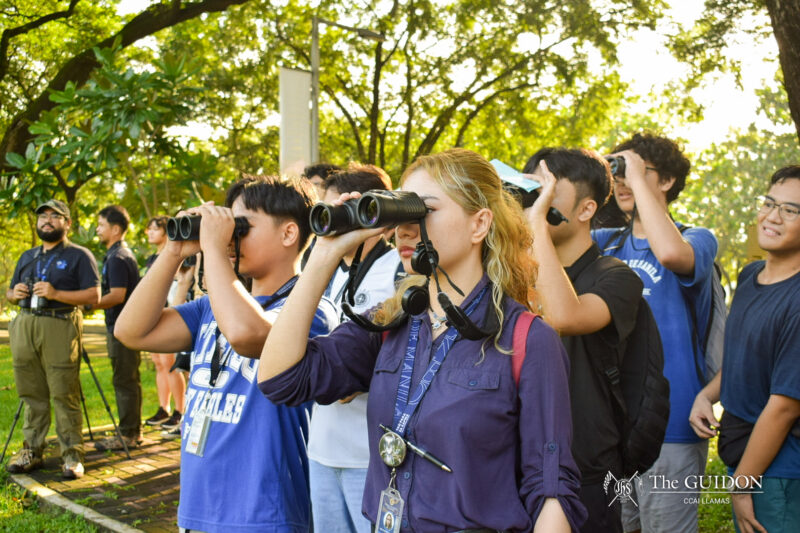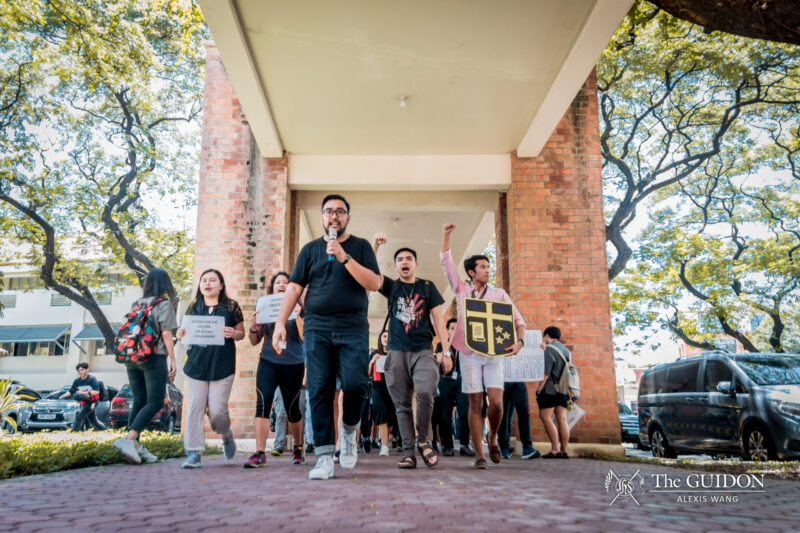“The Ateneo seeks to train men and women-for-others.”
This is a line you’ll see in the webpage on Ateneo’s vision and mission. If you’re an Atenean, you’ve probably heard a version of that quote before. It begs the question though: Do Ateneans really live this out?
In many ways, a lot of Ateneans do. We can all think of certain people and groups who do good for others, whether they’re helping those inside or outside the Ateneo community. You can think of the organizations doing outreach, last school year’s resurgent Sanggunian, or the selfless friends you look up to.
However, there must still be a deeper question: How can we do more good?
After all, this is what Fr. Ben Nebres, SJ, former President of Ateneo, called us to do in a presentation to the Loyola Schools faculty:
“The Ignatian vision…seeks to form people to develop their talents to the utmost and challenge them to the highest levels of service. Not just to seek the good, but the greater good. The magis.”
What I see in Nebres’ quote is a deeper challenge for us Ateneans—a challenge for us to make a greater positive impact with our lives .
So no matter how good or bad of a person you are, it’s important to ask yourself: How can I do more good for others?
Over the past two years, I dove deep into trying to answer this question. Early on, I found out that a movement of people and organizations who are striving to answer the same question was started in 2009.
This movement is called Effective Altruism, also known as EA. EA is a global philosophy and community of people answering the question: How can we use our resources to help others the most?
Through the help of multiple researchers, philosophers, and professionals, the EA community has come up with clearer answers to this question.
What they’ve found is that a lot of initiatives people or charities do to help others are far from the most effective methods.
A classic example of this is the PlayPumps International charity.
In 1989, Trevor Field bought the patent for a new type of water pump—a playground merry-go-round called PlayPump. Instead of having to use a hand pump or windmill pump to get water in rural areas, the PlayPump would let children play on it, and the spinning effect would pump water into a storage tank.
Many people thought it was a brilliant idea. The charity raised funding from multiple donors, got widespread media coverage, and even received a $16.4 million grant awarded by former U.S. First Lady Laura Bush. With this, PlayPumps went on to install 1,800 PlayPumps across Africa.
However, soon after, reports were released about how impractical PlayPumps were. In order to pump water, PlayPumps needed to be constantly spun, which was tiring for children. Some children even spun off and broke limbs.
Moreover, hand pumps could pump five times more water per hour than PlayPumps, and yet, one PlayPump costs four times as much.
This is just one example of many charities that have the best of intentions, but end up doing little good. In fact, there’s an estimate that 75% of social programs produce only small or no good.
When I first heard about PlayPumps and EA, I got hooked into learning more about EA. I then started to think more about the impact of my own actions and choices.
Along the way, I found other Filipinos who were deeply interested in EA too, and we decided to form a Philippine chapter of it. We now hold talks and workshops to educate more people about EA. Some Ateneans have attended, and a few of them and I are now setting up a chapter in Ateneo too.
Our aim is to help Filipinos combine both the head and the heart—to let them know what the world’s most important cause areas are, and how they can support these causes in a fulfilling way. For me, EA’s message is reminiscent of Frederick Buechner’s quote, which I’ve heard multiple times from my theology professors: “The place God calls you to is the place where your deep gladness and the world’s deep hunger meet.”
With this in mind, EA can help us know how to seek the greater good, and how to answer the world’s deep hungers.
Hopefully, EA inspires you to research on how to do more good, whether it’s in choosing a career, or knowing where to donate or volunteer. EA has helpful answers to each of these, and the answers may surprise you.
Ultimately, learning about EA is a step we can take to truly being persons for others. Hopefully, it teaches you to be wary of the PlayPumps of the world—the things that seem to do good, but actually, do harm.
Written by Brian Tan, BS Information Technology Entrepreneurship Graduate (Batch 2019) and founding member of Effective Altruism Philippines. He may be reached at work.briantan@gmail.com
What do you think about this story? Send your comments and suggestions here: tgdn.co/2ZqqodZ




